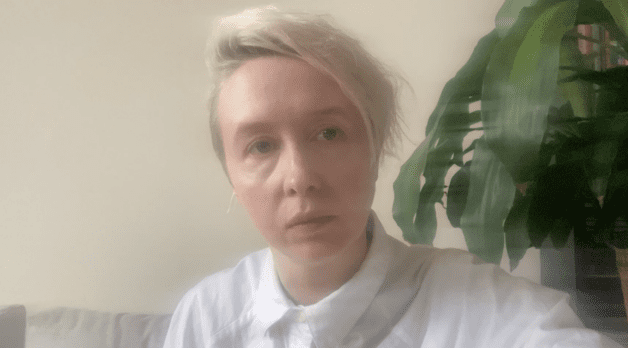Amelia Evans
 Amelia Evans
Amelia Evans

Minor Attraction takes its title from a lesser-known term for what’s more commonly and stigmatizingly referred to as pedophilia. Its footage was mostly captured in the summer of 2013, when Amelia Evans was interested in making a film about subjects with that diagnosis who met two other criteria: they’d never sexually interacted with a child as an adult, and they could handle the risks associated with appearing on camera. Only three people checked all those boxes: Paul, a dancer and choreographer; the older Gary, married to a woman fully conversant with his history; and Ben, with whom Evans enjoys the least rapport. Conversations with the first two are bruising in their extended candor as the subjects speak frankly about their temptations and managing their fantasies, but Evans’s time with Ben is cut short after an awkward interaction.
Currently in the final stages of editing, Minor Attraction is equally and unblinkingly attuned to its subjects and, on a parallel, self-reflexive track, the filmmaker’s changing position to her starting goals over the decade-plus of the film’s making. The movies that affected Evans growing up in New Zealand included Kids, Gummo, and Boys Don’t Cry, which “were doing something that society, my friends, communities I was in, teachers—you know, the world—weren’t, which is showing and articulating something about desire, perversion and things that we don’t want to talk about. That felt compelling to me. Being queer, I was in spaces where people felt very comfortable talking about who they were attracted to, but actually describing people’s sex acts and erotic fantasy lives was pretty rare. There was some hungering I had for film as one of the places exploring that.”
Her mother insisted Evans, a dancer, follow a more practical career path than the arts; she chose the law and, in 2008, was “working as a judge’s clerk at the [New Zealand] Court of Appeal, the highest appellate court in the country. We saw a lot of sexual offending against children and a number of people who acknowledged, in private exchanges, an attraction to children since they were children themselves, their hatred of that and an inability to articulate that to anybody. That’s when I wanted to make a film for the first time, but I had no idea how to do that—I’d never handled a camera. At this point, I got very into Ross McElwee’s films and saw that he was at Harvard. I knew I couldn’t get into Harvard’s film school because of said problem of not knowing how to make a film, but I could possibly get into Harvard Law School.”
Once there, Evans tracked down McElwee, who told her he was a bad teacher as far as training in “the actual physical work of how to hold a camera and the buttons to press.” He advised her to go study with his colleague Alfred Guzzetti for that, then come back if she still wanted to make a film. When Evans returned, she described her idea; McElwee told her that it would make a great New Yorker profile, but that there was nothing to film. (“I think he advises most people not to be filmmakers, to be honest,” Evans notes.) But after she made a short under his supervision, he lent her a camera for the summer. Evans took her road trip and won over McElwee with what she’d captured; he’s now a creative advisor on the project, joining executive producer Eve Ensler and content advisor Sarah Schulman.
The film’s lengthy post-production allowed Evans “to spend summers getting into art residencies,” including at the MacDowell. “It was less about the product and more about the experience that the film was giving me,” she says, and the lengthy post-production also has given her time to reconsider and evolve the project’s aims. In a 2015 interview with Independent Magazine, Evans had said her twin goals were to prevent child abuse and raise empathy for what it must be like to live with an unwanted attraction to children. Now, while the former is still a goal, her interest in empathy has evolved: “I’ve become more interested in whether the film enables the viewer to reflect more honestly about the dark parts of their own erotic lives. Do we want a society in which people can speak more openly about their fantasies and desires? Is that a kind of utopia? Or is privacy itself the erotic thing? I know many people feel that perhaps something being private or secret or shameful is what makes things sexy. But, after a decade of mulling this all over, I still don’t know how real that is.” In other words: “Over time, I’ve become less interested in transgression and more interested in repression. — Vadim Rizov/Image: Amelia Evans
